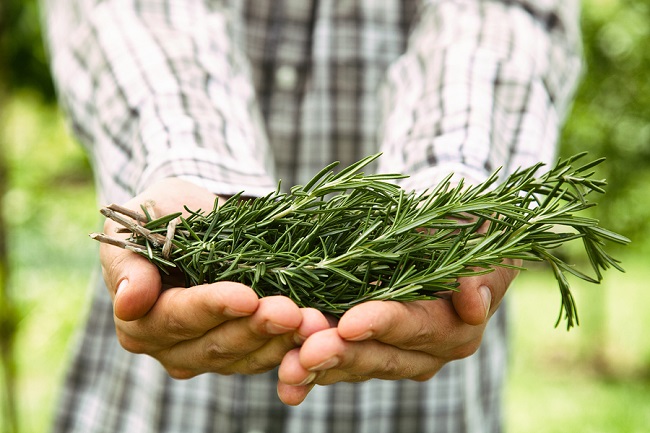- Make It Yourself Lavender Heart-Shaped Bath Bombs!
- 20 Things You Never Knew About “Down There”
- 12 Best Foods For Those Suffering From Arthritis Pain
- 12 Personal Hygiene Mistakes Almost Everyone Makes (Mom Never Told You About #4!)
- 15 Medicinal Plants And Herbs From The Cherokee People
- 12 Mind-Blowing Benefits Of Drinking Coconut Water During Pregnancy
- 12 Outstanding Winter Foods That Won’t Fatten You Up Like A Christmas Turkey
15 Amazing Herbs to Support This One Vital Organ

Photo credit: bigstock.com
10. Rosemary
Very similar to Echinacea, this sweet smelling herb is loaded with anti-microbial compounds that have antibacterial, anti-fungal, and antiseptic properties. Rosemary has long been used by herbal practitioners for the relief of the symptoms from sore throats, colds, coughs, flu, chest infections, and bronchitis. Rosemary contains a substance called carnosol, which in a 2011 study was evaluated for its anti-lung cancer properties. Scientists in Chicago, Illinois, found that carnosol had selective toxicity towards cancer cells while leaving healthy cells alone. In studies done with animals, rosemary had absolutely no side effects, even when given in high doses.
11. Slippery Elm
Slippery elm has been used by Native Americans for sore throats and various types of respiratory problems for hundreds, perhaps thousands, of years. Slippery elm has an almost unbelievable blend of diuretic, laxative, emollient, antiseptic, anti-inflammatory, mucilage, and expectorant compounds when are super effective in helping the lungs. Slippery elm fights bronchitis, stops bleeding in the lungs, and stops nagging coughs. It can soothe the entire respiratory system in general, providing much needed relief. Slippery elm is also great for those who suffer from asthma, by softening the mucous membranes in the nose. This herb’s anti-allergenic and antiseptic compounds have an overall refreshing and calming effect that is useful for anyone with a pair of lungs.
12. Irish Moss
This is a simply amazing herb that is still relatively unknown. Irish moss can treat a wide variety of respiratory illnesses, including pneumonia, the common cold, and flu. In fact, Irish moss is so effective that it is often the base of many prescription drugs used for treating bronchitis, pneumonia, and other lung problems. Irish moss is a great source of iodine, magnesium, and calcium. It also has anti-viral compounds that can help fight influenza B viruses and the mumps. This herb has been shown to have anti-inflammatory and expectorant compounds. Although this is called Irish moss, Chinese herbalists have been using this herb to relieve dry coughs, and dissolve catharrs, which are responsible for the congestion that typically causes coughs.
Continue to Page 5
































